Ibon Aranberri, Ed Atkins, Tosh Basco, Gerry Bibby, Juliette Blightman, Monica Bonvicini, Marco Bruzzone, Marc Camille Chaimowicz, Vaginal Davis, Michaela Eichwald, Ida Ekblad, Jos de Gruyter & Harald Thys, Wade Guyton, Leila Hekmat, Calla Henkel & Max Pitegoff, Karl Holmqvist, Veit Laurent Kurz, Klara Lidén, David Lieske, Helen Marten, Reba Maybury, Gabrielė Mišeikytė, Albert Oehlen, Seth Price, Hannah Quinlan & Rosie Hastings, Steve Reinke, Richard Rezac, Stephen Greer Rhodes, James Richards, Nora Schultz, Diamond Stingily, Anthony Symonds, Wu Tsang
Fugue
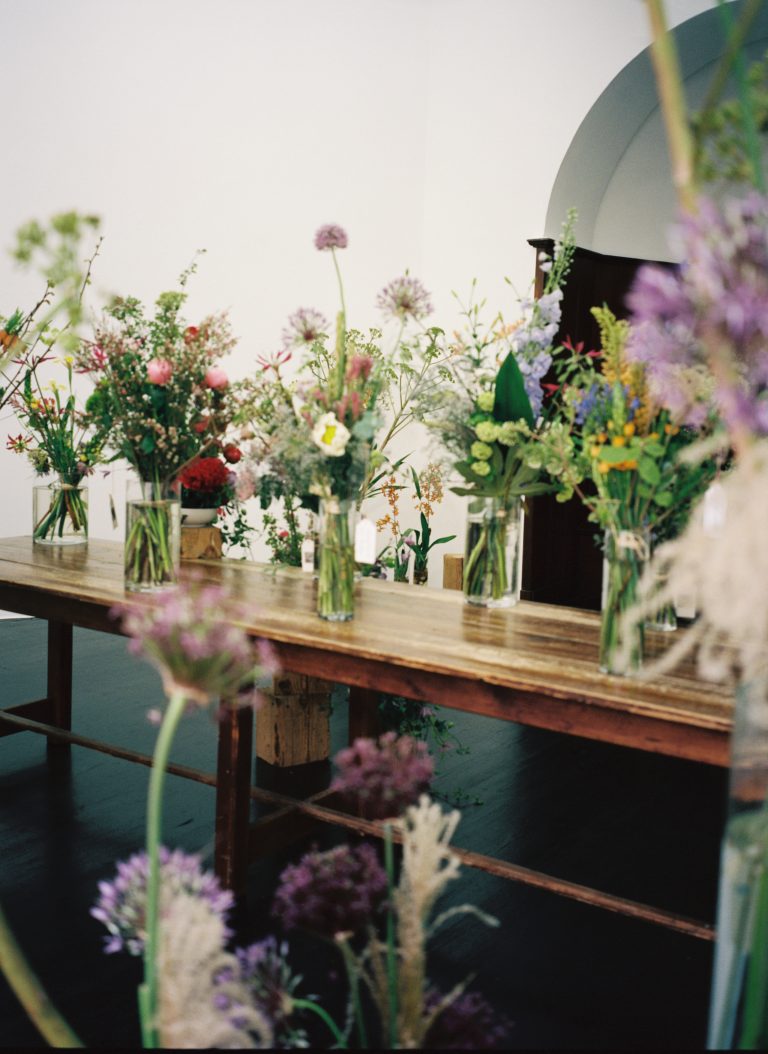
Installation view, Seth Price, Fugue, Galerie Isabella Bortolozzi, Berlin, 2022. Courtesy Galerie Isabella Bortolozzi, Berlin; Photos: Gabrielė Mišeikytė
We have to see that the economy is not “in” crisis, the economy is itself the crisis. It’s not that there’s not enough work, it’s that there is too much of it.
The Invisible Committee, 2009
As we know the definition of a Fugue is both a musical composition and a psychological condition. Both the condition and the composition are time-based.
One, the composition, involves the construction of a work, an “identity”, the other its dissipation, or temporary loss. The conception of this exhibition was occasioned by both. Personal and political conditions determined the composition of this show. The sentiment of the gift, the transitory nature of the flower, its loss (in a ecological, aesthetic and economic sense) seemed to me an appropriate antidote to the sometimes aggressive and visually invasive nature of the art industry.
The notion of community, which a project such as this assumes, demands more than our money.
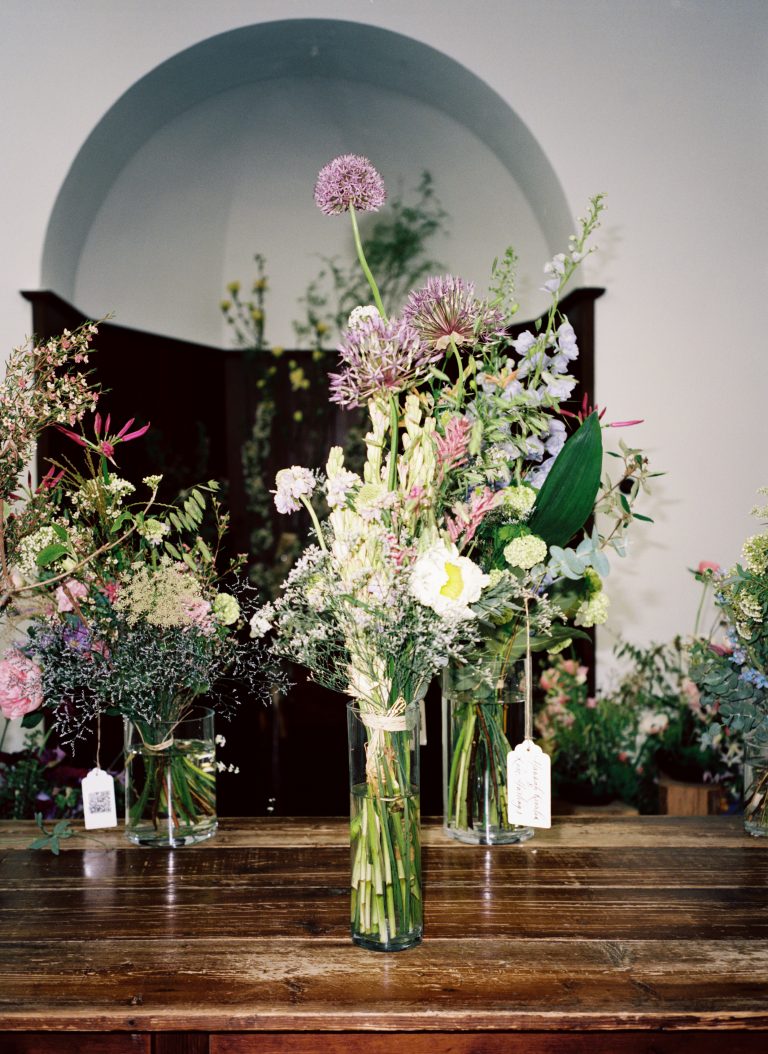
Installation view, Hannah Quinlan & Rosie Hastings, Fugue, Galerie Isabella Bortolozzi, Berlin, 2022. Courtesy Galerie Isabella Bortolozzi, Berlin; Photos: Gabrielė Mišeikytė
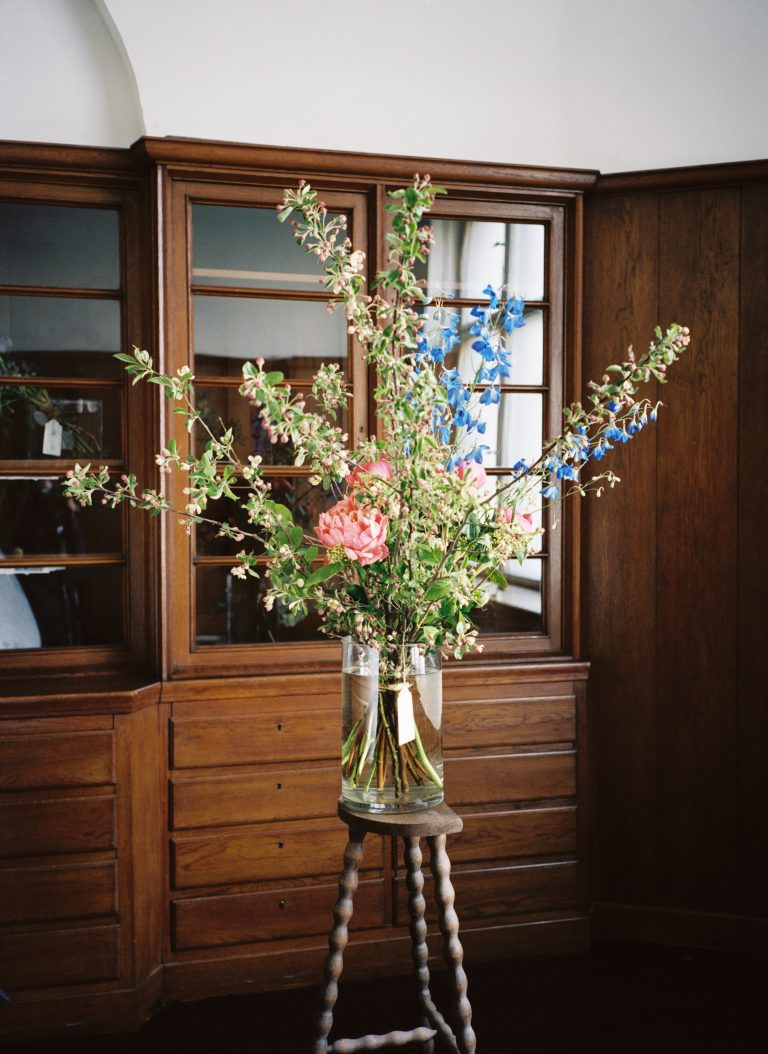
Installation view, Monica Bonvicini, Fugue, Galerie Isabella Bortolozzi, Berlin, 2022. Courtesy Galerie Isabella Bortolozzi, Berlin; Photos: Gabrielė Mišeikytė
On one level this project owes a debt to the beautiful and enduringly significant work “Identity Capital” by John Knight. Clearly John Knight’s motives were very different, the conceptual framework based on other socioeconomic concerns. Yet it is in the gift of his work that political & ethical care are always embodied in an aesthetic experience; this is the example we have followed.
Isabella Bortolozzi
Renate Bertlmann, Ellen Cantor, Vaginal Davis, Leila Hekmat, Friedl Kubelka, Sarah Lucas, Reba Maybury, Meret Oppenheim, Gina Pane, Carol Rama, Wu Tsang
In the Company of
I had to return home.
I didn’t want to escape my parents becuase I hated them but because I was wild. Wild children are honest. My mother wanted to command me to the point that I no longer existed. My father was so gentle, he didn’t exist. I remained uneducated or wild because I was imprisoned by my mother and had no father.
My body was all I had.
A a a I don’t know what language is. One one one one I shall never learn to count.
I remained selfish. There was only my mother and me.
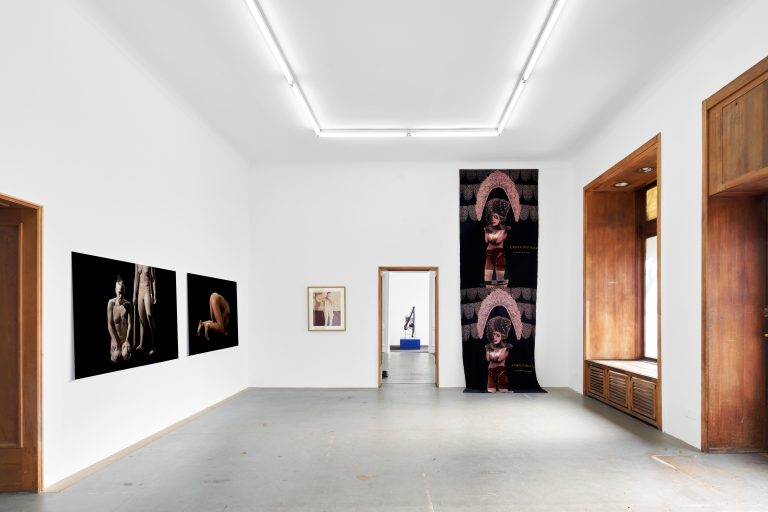
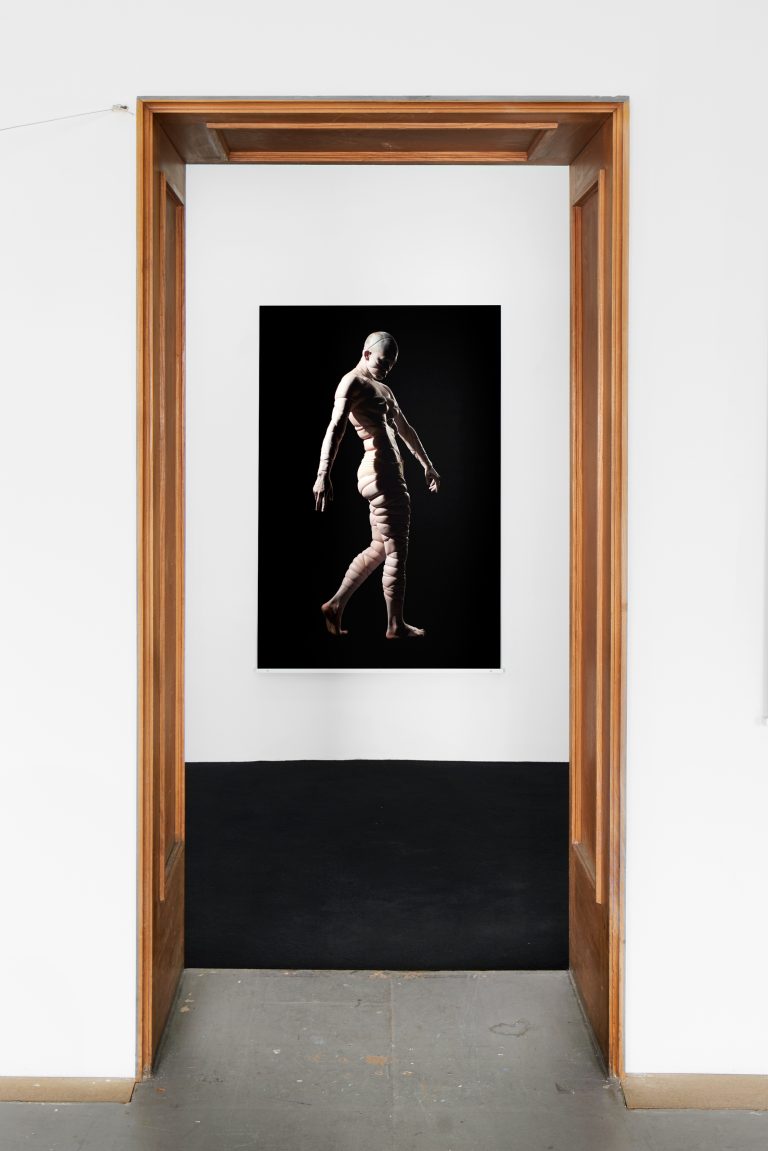
Selfishness and curiosity are conjoint. I’d do anything to find out about my body, investigated the stenches arising out of trenches and armpits, the tastes in every hole. No one taught me regret. I was wild to make my body’s imaginings actual.
And I knew that I couldn’t escape from my parents because I was female, not yet eighteen years old. Even if there was work for a female minor, my parents, my educators, and my society had taught me I was powerless and needed either parents or a man to survive. I couldn’t fight the whole world; I only hated.
So in order to escape my parents I needed a man. After I had escaped, I could and would hate the man who was imprisoning me. And after that, I would be anxious to annihilate my hatred, my double bind.
This personal and political state was the only one they had taught me. I’m always in the wrong so I’m a freak. I’m always destroying everything including myself, which is what I want to do.
Red was the color of wildness and of what is as yet unknown.
As my body, which my mother refused to recognize and thus didn’t control, grew, it grew into sexuality. As if sexuality can occur without touching. Masturbated not only before I knew what the word masturbation meant, but before I could come. Physical time became a movement toward orgasm. I became sexually wilder. I wanted a man to help me escape my parents but not for sexual reasons. I didn’t need another sexual object. Mine was my own skin.
Longing equalled skin. Skin didn’t belong to anyone in my kingdom of untouchability.
I hadn’t decided to be a person. I was almost refusing to become a person, because the moment I was, I would have to be lonely. Conjunction with the entirety of the universe is one way to avoid suffering.”
—Kathy Acker
This text was originally published in My Mother, Demonology © 1993 Pantheon, New York.
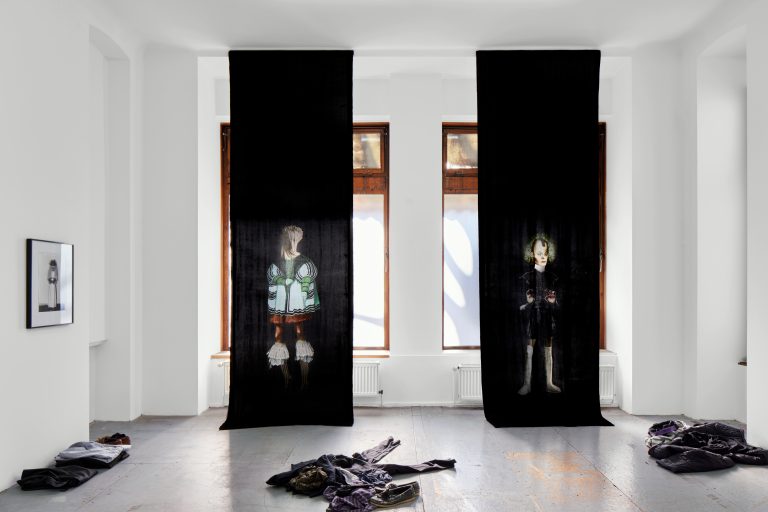
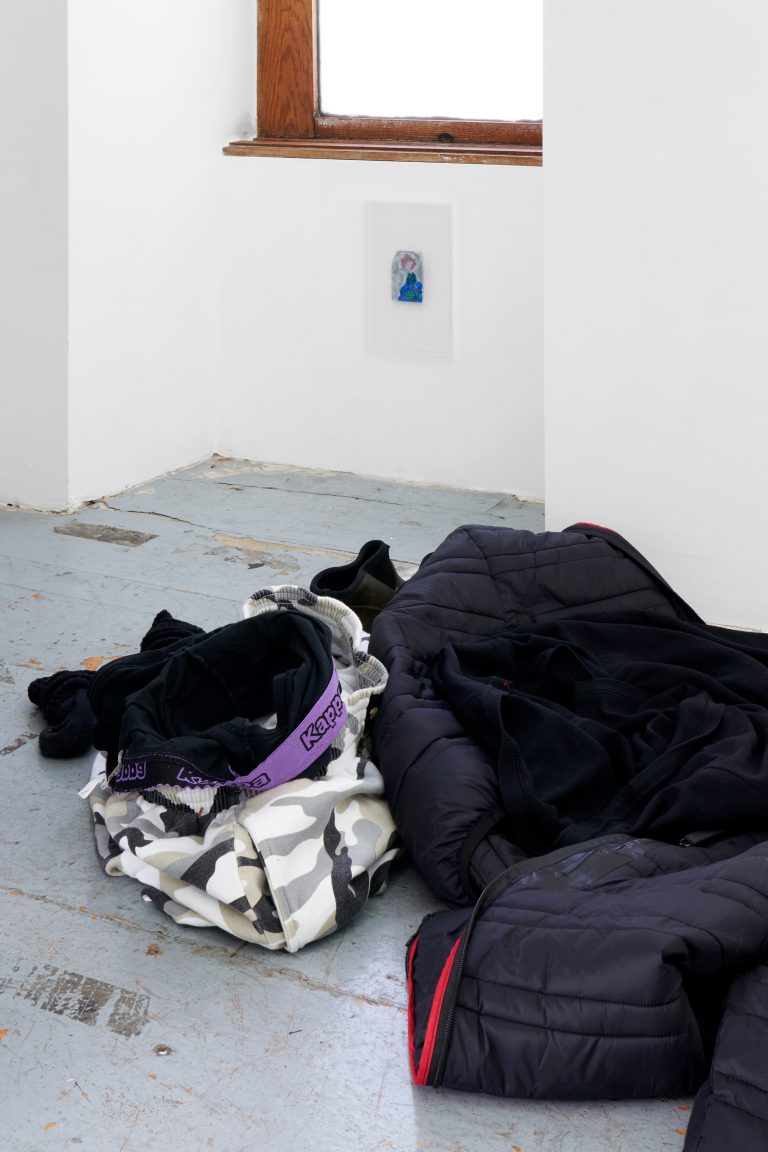
from Le Sacré by Laure
8
I find myself
trapped
as in a circle
which I escape
by this other
which brings me back
Hieratic gestures, vile grimaces mix, merge, disappear, reemerge…
then vanish entirely. And this “game” will go on a long time.
I thought I was going to heaven (joking aside) just as life again
placed its heavy lid over me.
I used all my inherent contradictions living “to be true” all that one
carries within “to the end.”
I scattered myself to the four winds with the proud certainty of
always finding myself at the zenith and then I fell empty, lost,
four limbs mutilated.
I went away over high roads, steep paths, rocks flown over by
eagles . . .
The infernal 8 came back to lasso me
I climb along its contours
I drift in its meanderings
I jump out of the circle
and fall back into the other
I remain strangled in the middle
my face is there
frozen eel dolphin earthworm
And who, seeing this fateful sign
would think of discovering me there,
would want to release me?
“A prisoner escaped by jumping the wall at the very place he was to
be executed.” (The newspapers) May 8
This text was originally published in Ecrits de Laure © 1971 Editions Jean-Jacques Pauvert. This translation Jeanine Herman © 1995 by City Lights
